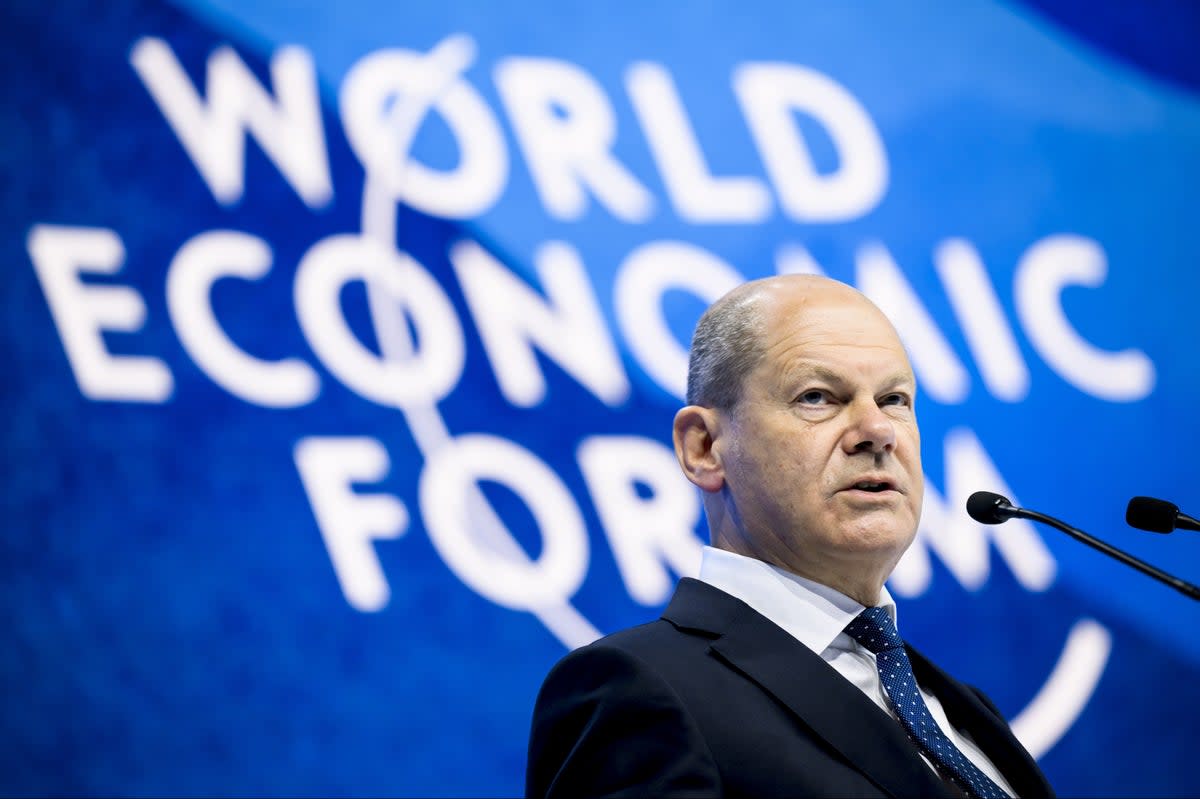Davos 2024: What is it, who is attending, and why is it controversial?

For 51 weeks of the year, Davos is nothing more than a popular ski resort in the lofty Swiss Alps.
But for one week in January, billionaires, world leaders, and global elites descend on the small alpine town for the annual meeting of the exclusive World Economic Forum (WEF), to discuss pressing issues of the day.
However, many see it as elitist, claiming the event celebrates the one per cent, usually male, who are mainly responsible for the world’s problems.
Kicking off today (January 15), this year’s WEF theme is Rebuilding Trust.
So what is WEF, who is going, and who has criticised it and why?
Here’s everything you need to know.
What is Davos?
Held every year in the Alpine ski resort of Davos, the WEF hosts thousands of attendees, from world leaders and business people to charities and academics, to discuss key global issues.
The huge invite-only conference includes hundreds of discussions, speeches, and panels, plus all-important networking that often extends into the early hours.
According to the WEF website, Davos will “provide a platform to engage in constructive, forward-looking dialogues and help find solutions through public-private cooperation”.
Founded in 1971 by Klaus Schwab, a Swiss-German economist and professor, WEF is an international not-for-profit organisation that brings together the public and private sectors to brainstorm solutions to global problems.
When is Davos 2024?
This year’s meeting will take place between January 15 to 19.
Davos 2024 is the second year in a row returning to the traditional January event, after the meeting was pushed to May in 2022 and held online in 2021.
What will be discussed?
This year’s theme is Rebuilding Trust, and within that are five sub-themes, including achieving security and cooperation in a fragmented world, creating growth and jobs for a new era, artificial intelligence as a driving force for the economy and society, and a long-term strategy for climate, nature and energy.
Klaus Schwab, the WEF’s founder, has called on delegates to “advance dialogue, strengthen cooperation and deepen partnerships on critical global challenges”.
He said: “We face a fractured world and growing societal divides, leading to pervasive uncertainty and pessimism. We have to rebuild trust in our future by moving beyond crisis management, looking at the root causes of the present problems and building together a more promising future.”
Who is attending Davos 2024?
According to the WEF’s website, the heads of its 1,000 partner companies are invited, alongside public figures, chiefs of international organisations, society leaders, academics, and “top thinkers”, comprising more than 2,700 people.
Companies, countries, and regions can set up their stalls to sell concepts and services, or invite investment.
Billionaires – but none from Russia
The makeup of the billionaire guest list reflects the upheaval from global conflict and shifts in power.
There will be no Russian oligarchs in attendance this year, as they have been forced out by sanctions levied since Putin’s invasion of Ukraine in February 2022.
Last year, Bloomberg calculated roughly 116 billionaires registered to attend Davos 2023, 40 per cent more than a decade ago.
Fewer politicians
The WEF used to attract heads of state and activists from across the political spectrum, from former US president Donald Trump and former Brazilian president Jair Bolsonaro to climate campaigner Greta Thunberg.
While there are dozens of heads of state heading to the conference this year, some high-profile leaders are missing this year. US President Joe Biden and his Chinese and Russian counterparts Xi Jinping and Vladimir Putin have all opted out.
Rishi Sunak has also skipped the week’s events for the second year in a row.
French president Emmanuel Macron is the only leader from a G7 country in attendance, and one of the most heavyweight political figures set to be in attendance, alongside China’s second-in-command Li Qiang.
From the UK’s side, Jeremy Hunt, the chancellor, Lord Cameron of Chipping Norton, the foreign secretary, and Kemi Badenoch, the business secretary, will be in attendance, as will Rachel Reeves, the shadow chancellor.
Is Davos elitist?
Critics have often suggested that Davos is a symbol of the “global elite”, a talking shop for the population’s one per cent.
In 2019, Time magazine editor-at-large Anand Giridharadas described Davos as “a family reunion for the people who broke the modern world”.
In the same year, Dutch popular historian Rutger Bregman used a panel to slam delegates for not paying their fair share of taxes.
There are often protests in Davos and major Swiss cities ahead of the conference.
Davos is also male-dominated, with the term “Davos Man” becoming a nickname for the type of wealthy, elite male who typically goes. The best ratio of female participants in WEF’s 52-year history of in-person gatherings was 24 per cent, in 2020.
But WEF argues it is simply interested in bringing leaders together for the greater good.

 Yahoo News
Yahoo News 
